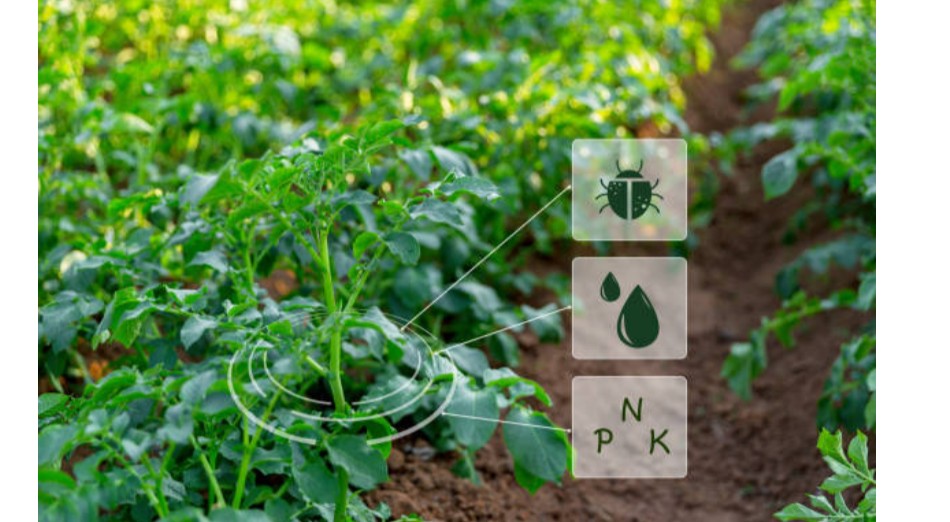
This comprehensive five-day training course is designed to equip participants with the knowledge and practical skills necessary to implement effective and sustainable Integrated Pest and Disease Management (IPDM) strategies in agricultural and horticultural settings. Participants will gain a thorough understanding of the principles of IPDM, including pest and disease identification, monitoring techniques, biological, cultural, and physical control methods, and the judicious use of chemical pesticides within an integrated framework, with a specific focus on the agricultural context relevant to Kenya.
The course will cover a range of essential topics, including agro-ecosystem analysis, understanding pest and disease life cycles, economic thresholds, biological control agents, cultural practices for pest and disease prevention, safe and responsible use of pesticides, and the development and implementation of IPDM programs tailored to specific crops and farming systems prevalent in Kenya. Through interactive sessions and practical field exercises, participants will learn how to diagnose pest and disease problems and develop environmentally sound and economically viable management strategies.
Who should attend the training
Objectives of the training
Personal benefits
Organizational benefits
Training methodology
Trainer Experience: Our trainers are highly experienced agricultural scientists and pest management specialists with extensive practical experience in Integrated Pest and Disease Management in Kenya and East Africa. They possess advanced degrees in entomology, plant pathology, and related agricultural disciplines, and have a strong track record of conducting research, developing IPDM strategies, and training farmers and extension personnel on sustainable pest and disease management practices relevant to the Kenyan agricultural context.
Quality statement: Armstrong Global Institute is committed to providing high-quality, practical, and relevant training in Integrated Pest and Disease Management. Our courses are developed and delivered by experienced professionals who are experts in their field and familiar with the specific agricultural challenges and opportunities in Kenya. We utilize participatory methodologies and real-world examples to ensure effective learning and the adoption of sustainable IPDM practices.
Tailor-made courses: Armstrong Global Institute offers tailor-made IPDM training courses to meet the specific needs of agricultural organizations, farmer groups, and agribusinesses in Kenya. We can customize the course content, duration, and focus to address the specific crops, pests, diseases, and farming systems relevant to your context. Contact us to discuss your specific training needs and how we can develop a targeted and impactful IPDM training program for your stakeholders.
Course duration: 5 days
Training fee: USD 1300
Module 1: Introduction to Integrated Pest and Disease Management (IPDM)
Module 2: Pest and Disease Identification and Monitoring
Module 3: Biological Control Methods in IPDM
Module 4: Cultural and Physical Control Methods in IPDM
Module 5: Understanding Pest and Disease Life Cycles and Epidemiology
Module 6: Judicious Use of Chemical Pesticides in IPDM
Module 7: Agro-ecosystem Analysis for IPDM
Module 8: Developing and Implementing IPDM Programs
Module 9: IPM for Specific Crops and Farming Systems in Kenya
Module 10: Communication and Extension of IPDM Practices
Requirements:
· Participants should be reasonably proficient in English.
· Applicants must live up to Armstrong Global Institute admission criteria.
Terms and Conditions
1. Discounts: Organizations sponsoring Four Participants will have the 5th attend Free
2. What is catered for by the Course Fees: Fees cater for all requirements for the training – Learning materials, Lunches, Teas, Snacks and Certification. All participants will additionally cater for their travel and accommodation expenses, visa application, insurance, and other personal expenses.
3. Certificate Awarded: Participants are awarded Certificates of Participation at the end of the training.
4. The program content shown here is for guidance purposes only. Our continuous course improvement process may lead to changes in topics and course structure.
5. Approval of Course: Our Programs are NITA Approved. Participating organizations can therefore claim reimbursement on fees paid in accordance with NITA Rules.
Booking for Training
Simply send an email to the Training Officer on training@armstrongglobalinstitute.com and we will send you a registration form. We advise you to book early to avoid missing a seat to this training.
Or call us on +254720272325 / +254725012095 / +254724452588
Payment Options
We provide 3 payment options, choose one for your convenience, and kindly make payments at least 5 days before the Training start date to reserve your seat:
1. Groups of 5 People and Above – Cheque Payments to: Armstrong Global Training & Development Center Limited should be paid in advance, 5 days to the training.
2. Invoice: We can send a bill directly to you or your company.
3. Deposit directly into Bank Account (Account details provided upon request)
Cancellation Policy
1. Payment for all courses includes a registration fee, which is non-refundable, and equals 15% of the total sum of the course fee.
2. Participants may cancel attendance 14 days or more prior to the training commencement date.
3. No refunds will be made 14 days or less before the training commencement date. However, participants who are unable to attend may opt to attend a similar training course at a later date or send a substitute participant provided the participation criteria have been met.
Tailor Made Courses
This training course can also be customized for your institution upon request for a minimum of 5 participants. You can have it conducted at our Training Centre or at a convenient location. For further inquiries, please contact us on Tel: +254720272325 / +254725012095 / +254724452588 or Email training@armstrongglobalinstitute.com
Accommodation and Airport Transfer
Accommodation and Airport Transfer is arranged upon request and at extra cost. For reservations contact the Training Officer on Email: training@armstrongglobalinstitute.com or on Tel: +254720272325 / +254725012095 / +254724452588
| Course Dates | Venue | Fees | Enroll |
|---|---|---|---|
| Mar 16 - Mar 20 2026 | Kuala Lumpur | $8,000 |
|
| Feb 23 - Feb 27 2026 | Tokyo | $8,000 |
|
| Apr 13 - Apr 17 2026 | Casablanca | $5,000 |
|
| Jan 26 - Jan 30 2026 | Nakuru | $1,500 |
|
| Mar 02 - Mar 06 2026 | Dubai | $5,000 |
|

Armstrong Global Institute
Typically replies in minutes